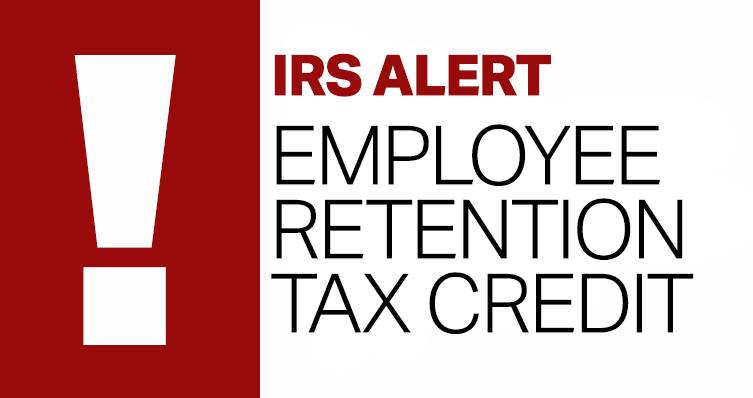
The IRS is alerting business owners to a list of seven recurring red-flag issues that could impact their employee retention credit claims.
The agency revealed the list as a precautionary measure for small businesses who might have incorrectly filed ERC claims, many of them the result of fraudulent advisors cashing in on the temporary COVID-era tax break. The IRS has set a deadline of March 22, 2024, for businesses to use its ERC voluntary disclosure program to repay false claims at 80% and avoid massive interest and penalties.
For businesses still unaware that their ERC claim could in fact be fraudulent, the seven warning signs provide insight:
Too many quarters being claimed. Some employers have been falsely told to file for all or nearly all the quarters available during the ERC period. The IRS points out that it’s uncommon for businesses to meet that qualifying threshold.
Citing government orders that don’t qualify. Employers whose business wasn’t affected by COVID-related government orders in their area likely aren’t eligible for the credit.
Too many employees and wrong calculations. Overclaiming the credit can happen when an employer applies the same credit amount across multiple tax periods for the same employee.
Citing supply chain issues. Qualifying for the credit based on a supply chain disruption is not common and often cited mistakenly.
Claiming the credit for an entire calendar quarter. It’s uncommon for an employer to qualify for ERC for an entire calendar quarter if their business operations were suspended due to a government order during a portion of that quarter. Overstated qualifying wages could lead to a false claim.
Non-existent wages. Employers can claim ERC only for tax periods when they paid wages to employees. They also must have had an employee identification number with the IRS to qualify as an existing business.
More is better because there’s nothing to lose. Employers who were advised to over-claim ERC credits under the guise of more-is-better might be harmed most of all as penalties, interest, and potential audit inquiries pile up.
Visit the IRS website for extensive information on the ERC, who qualifies, and next steps.
© 2024 KraftCPAs PLLC
KraftCPAs can help.
Call us at 615-242-7351 or complete the form below to connect with an advisor.